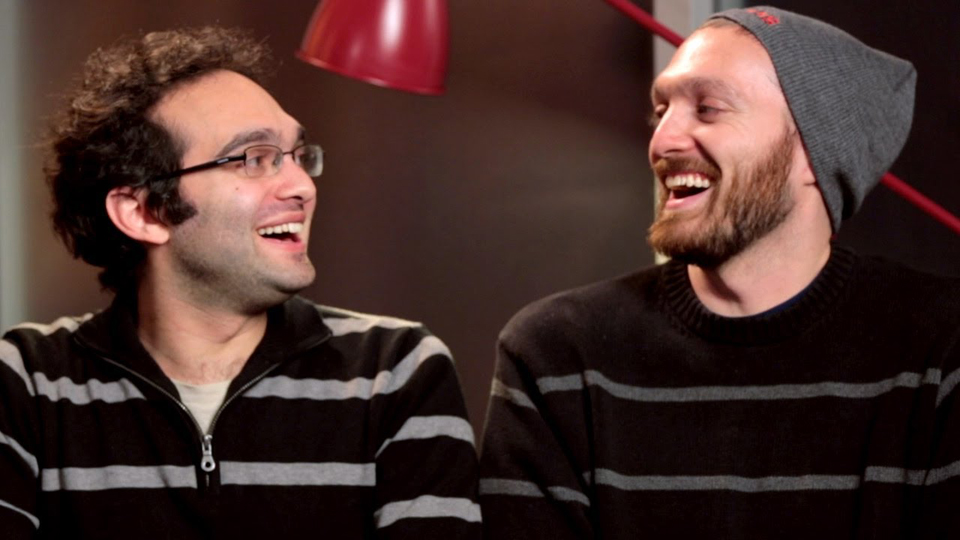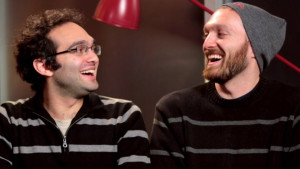
By Zachary Landau | The Duquesne Duke

Operating one of the most popular YouTube Channels, Benny and Rafi Fine are most well known for their “X React to Y” series. They’ve drawn criticism after trying to trademark the video format.
Two weeks ago, online producers, writers and directors the Fine Brothers announced that they were in the middle of trademarking the word “React” in relation to their most successful series of videos that follow the moniker “X React to Y.” This series, which is composed of over 400 videos, is based on a popular interview format of recording people’s raw reactions to something, whether that be another video or an old video game console.
The duo also announced a project called “React World,” a licensing program designed to grant access to the “React” title in order to make their own “React” videos. In turn, the Fine Bros would receive a portion of the revenue gained through these franchised shows.
This news was met with immediate and harsh criticism. Many fans and other YouTube channels decried the move as dishonest and, as BBC News reported, an attempt to “stifle competition.”
People justified their criticisms by citing the Fine Bros’ past behaviors concerning other people’s videos. Speaking to BBC, Jon from the “Many A True Nerd” channel, reminded the outlet about the Fine Bros’ incident with Ellen DeGeneres back in 2014.
“People don’t trust them because … when Ellen DeGeneres did a similar video – not that similar, it didn’t have the same format or branding – they claimed it was their format,” Jon explained.
In response to DeGeneres’ video, the Fine Bros encouraged their fans to comment their disapproval for supposedly copying their format.
Many other content creators and consumers also pointed out that the Fine Bros did not create the video format of recording and interviewing specific demographics.
Media lawyer Ryan Morrison was adamant about his criticism of the trademark.
“These guys didn’t come up with the idea of filming funny reactions from kids,” he explained in a blog post on his official website, “And they certainly don’t own an entire genre of YouTube videos. It wasn’t their idea, and it’s not theirs to own or police.”
Morrison also publicly announced in the same post his plans to file an opposition to the trademark, which any member of the public can do, as well as assist “a large group of streamers and content creators in an opposition, pro bono.”
After the initial backlash, the brothers released a response countering the allegations that they would abuse their position. In the now-removed video, Benny Fine justified the trademarks, saying “in very rare cases somebody produces a beat-by-beat version of your exact series, which has happened to us.”
However, that did not stop fans from making their opinion heard. The channel, “Fine Brothers Entertainment,” lost more than 170,000 subscribers nearly a week after the announcement.
The critical backlash forced the two to retract their trademark filings and apologize for the whole incident. In a post written on Medium, the brothers wrote that, “The concerns people have about React World are understandable, and that people see a link between that and our past video takedowns, but those were mistakes from an earlier time.”
In the aftermath of the controversy, many content creators tried to put the incident in a wider context. Hank Green, one half of the “Vlogbrothers” channel and numerous other YouTube-based projects, lamented the reaction of the Internet, saying that he understands why people would be upset, but felt that most of the discussion surrounding the issues was “much more to do with how to most cleverly insult people.”
Jim Sterling, an independent video game journalist with a YouTube channel, was conversely upset with the affair, criticizing the Fine Bros for teaching larger media companies how to do the same thing without getting caught. In his podcast “Podquisition,” he bemoaned that “what the Fine Brothers did was that they tested the waters and … other companies will learn from their mistakes and find a better way to try and slip the same [thing] under the radar.”
Considering the strong backlash, it may be a long while before we see any company attempt something similar.




